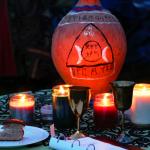One of the reasons I keep this blog is to be a resource for people who come into the Big Tent of Paganism.
A few know exactly what they’re looking for, they’re just not sure where to find it. Others have a vague idea of what they need (or what they don’t need) and they’re looking for more details. Many, though, are so overwhelmed by our Christian-dominated, atheist-influenced society they have no idea what’s even possible.
Especially those who feel called by or called to one or more of the many Gods.
There are plenty of books, blogs, and websites devoted to Wicca and to every form of witchcraft imaginable. There is less for Druidry but still quite a bit.
For polytheism there is much, much less.
Polytheism is not a religion. Rather, it is a religious outlook or perhaps, a religious orientation. There are many polytheist religions. Some are centered on ethnic identities. Some are attempts to re-create the religions of our ancient ancestors. A few are living indigenous traditions going back thousands of years. What they share – what makes each religion a polytheist religion – is the religious regard for many real Gods (to borrow the definition first proposed by the Anomalous Thracian).
I’m not an authority on all these religions. I’m not an authority on any of them. What I am is someone who has traveled the road from monotheism to deism to Paganism to what I call (for lack of a better term) ancestral, devotional, ecstatic, oracular, magical, public, Pagan polytheism. Along the way I’ve learned some things, things that may be useful to beginning polytheists.
And so here is my letter to beginning polytheists.
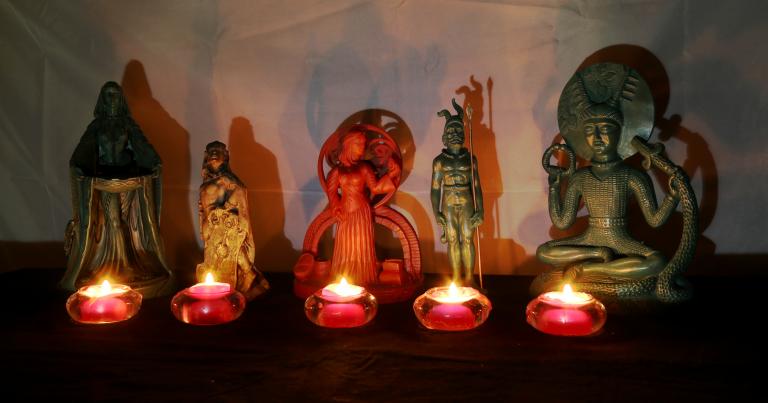
Worship the Gods
This is where polytheism begins – with the worship of one or more of the many Gods.
Worship is not self-debasement. Worship is proclaiming what we find worthy – and there is nothing more worthy than the Gods.
Worship Them with offerings of food, drink, and incense. Worship them with song, dance, and poetry. Tell Their stories and proclaim Their mighty deeds, both ancient and modern. Honor Them with your service to Their virtues and values, and with your labor to re-establish Their place of prominence in human society.
There are many ways to worship – choose the one that seems most right to you. But make Their worship the center of your practice.
Honor your ancestors
Strictly speaking, ancestor veneration is not a requirement of polytheism. But I know of no polytheist religion, ancient or modern, that does not include reverence for its ancestors.
We owe a debt to those who came before us. We have a sacred obligation to honor our ancestors of blood, for without them we would not be. We also have an obligation to honor our ancestors of spirit, those who created the religious and spiritual foundations upon which we build.
Our ancestors are often our most readily available spiritual allies. Beyond our sacred obligations, there are practical reasons to keep them present in your life. Honor them on a regular basis.
Don’t forget the other spirits in your life
Our Gods and ancestors are important. So are the spirits of the places where we live and work and visit. So are the Fair Folk and other persons who share the land with us. Do your best to form and maintain good relationships with all of them.
Remember that they’re persons with their own lives and own priorities – they’re not here to be your teachers, much less to serve you. But it helps to be on good speaking terms with your neighbors – all your neighbors.
Learn from the past – live in the present
The stories our ancient ancestors told about their Gods are treasures. So are their temples and other holy places, even if all that’s left are ruins. Mainstream scholarship has been very helpful as we attempt to puzzle out the key beliefs and practices of religions that haven’t been actively practiced in over a thousand years. As polytheists we need to learn as much as we can from history, archaeology, anthropology, and the other social sciences.
At the same time, we are not Pharaonic Egyptians or pre-Roman Celts. We are different people living in different places at a different time. Our polytheist religions should be grounded in the past, but they must live in the present – they must speak to our culture, environment, and relationships here today.
If you believe the Gods spoke (in any sense of the term) to our ancestors and told them how They should be worshipped, there is no reason not to believe those same Gods will speak to us here and now and tell us what we need to know to honor Them properly.
Of course, that means we have to actually listen for Them. And when we hear Them, it means we have to pay attention to what we hear.
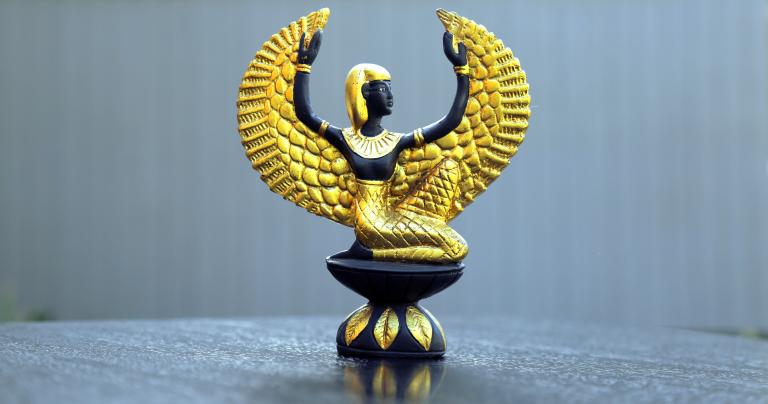
You don’t need a patron deity
I’m not sure where the idea that everyone should have a patron deity came from, but it’s rather common in the Pagan movement. In ancient times, deities were patrons of cities or nations or professions, but rarely of individuals.
You don’t need a patron deity to be a polytheist. You don’t need to be called. All you need is the desire to honor one or more of the Gods, and then to act on that desire. It is always good to worship the Gods.
Priesthood is not the only way to serve
Honoring a God does not make you Their priest – it makes you Their devotee. Priesthood is a formal relationship that focuses on service to a specific deity or group of deities. It has requirements that are sometimes harsh and it should never be taken lightly.
This is also a good time to point out that our popular image of a priest is drawn heavily from what we see Catholic priests and Protestant ministers doing. That wasn’t what polytheist priests did in ancient times, and it’s not necessarily what our Gods are calling priests to do in our time.
Both the Gods and the polytheist movement have a need for sacred service in ways that are not priesthood: community service, academic research, theological and philosophical work, and much more. Find the role where you can do the most good.
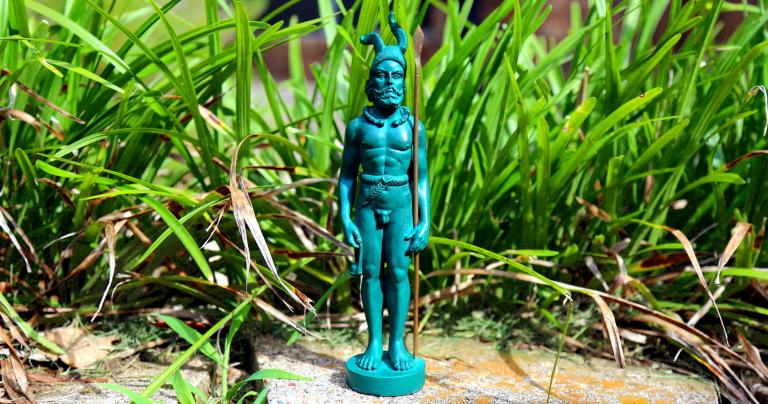
You will never understand the Gods – try anyway
I have previously compared humans contemplating the nature of the Gods to cats contemplating the nature of humans. We can know a few things about the Gods because we experience Them and we have relationships with Them. But however wise we may be, the Gods are more. So much more that our theologies say as much about how we see ourselves as how we see the Gods.
If you are in a relationship with another human, you naturally want to know all you can about them. The same is true of our relationships with the Gods. There is value in contemplating Their nature, and especially in the dialogue such contemplation produces.
But if you ever get to the point where you’re absolutely sure you know exactly who They are and what They want, turn around. You’ve made a wrong turn somewhere.
Listen to the wise, ignore the foolish
Many people are eager to tell you all they know about this God or that Goddess or about the Gods in general. Others are more reserved, but when prompted will share what they know from history, tradition, or personal experience. Learning from the wise can be very helpful. Trying to learn from the foolish is not.
So who is wise and who is foolish? That’s the challenge, isn’t it?
I respect people who state facts and cite sources, especially those who understand the limitations of their sources. UPG (unverified personal gnosis) is real and it can be helpful, but it is only authoritative for those who receive it, or who choose to accept it. Good history is generally reliable, but just because they did it one way in ancient times doesn’t mean we must do it that way now – or that we should do it at all.
Mainly I respect people who understand that religious questions are ultimately uncertain, and that foundational assumptions are critical. If someone sees the world in much the same way as I do, I’m going to pay careful attention to their opinions. If their worldview is filled with concepts from monotheism or from atheism, I’m not going to pay much attention at all.
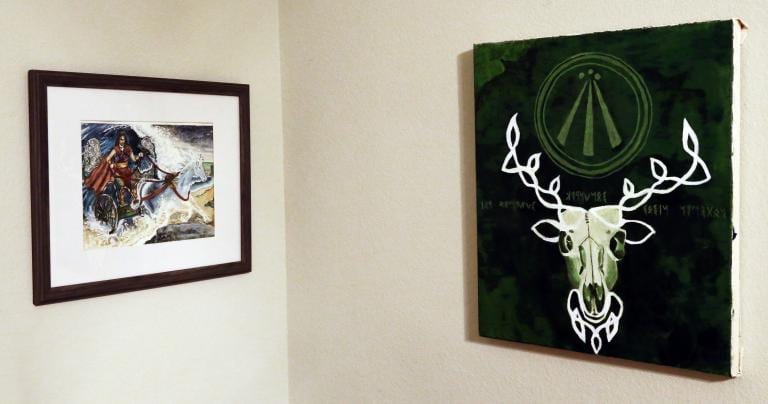
You must choose your path
Which God or Gods will you follow? How will you worship Them? How will you incorporate non-divine persons into your practice? How much weight will you give to what is known about how our ancestors worshipped these deities?
These are only a few of the questions you must answer. There are some current groups that have established religions around the worship of certain deities. If you find one of them – and if you’re compatible with them – they may be able to answer some of these questions for you.
Most likely, though, you’ll be trying to answer these questions on your own. And that’s OK.
Remember: there is no such thing as “my truth.” Something is either true or it isn’t. But there is “the truth as I see it” – your best guess based on your research and experience.
We are not Christian or Islamic fundamentalists – choosing the “wrong” God or worshipping Them in the “wrong” way will not cost you your soul. But our religions contain our most sacred relationships, and we must approach them in the way we honestly think best, not in the way some authority figure tells us we must.
But you don’t have to travel it alone
Whichever God or Gods you decide to worship, whatever theologies you subscribe to, whatever spiritual practices you adopt to maintain and enhance your sacred relationships, the odds are good someone else is doing much the same thing, if not exactly in the same way.
Find them.
Humans are social animals and religion is a group effort. Together we can do more, and better. Besides, it’s just more fun with more people. And also more complicated, but I prefer complicated to alone.
May the Gods bless you as you respond to Their call!


